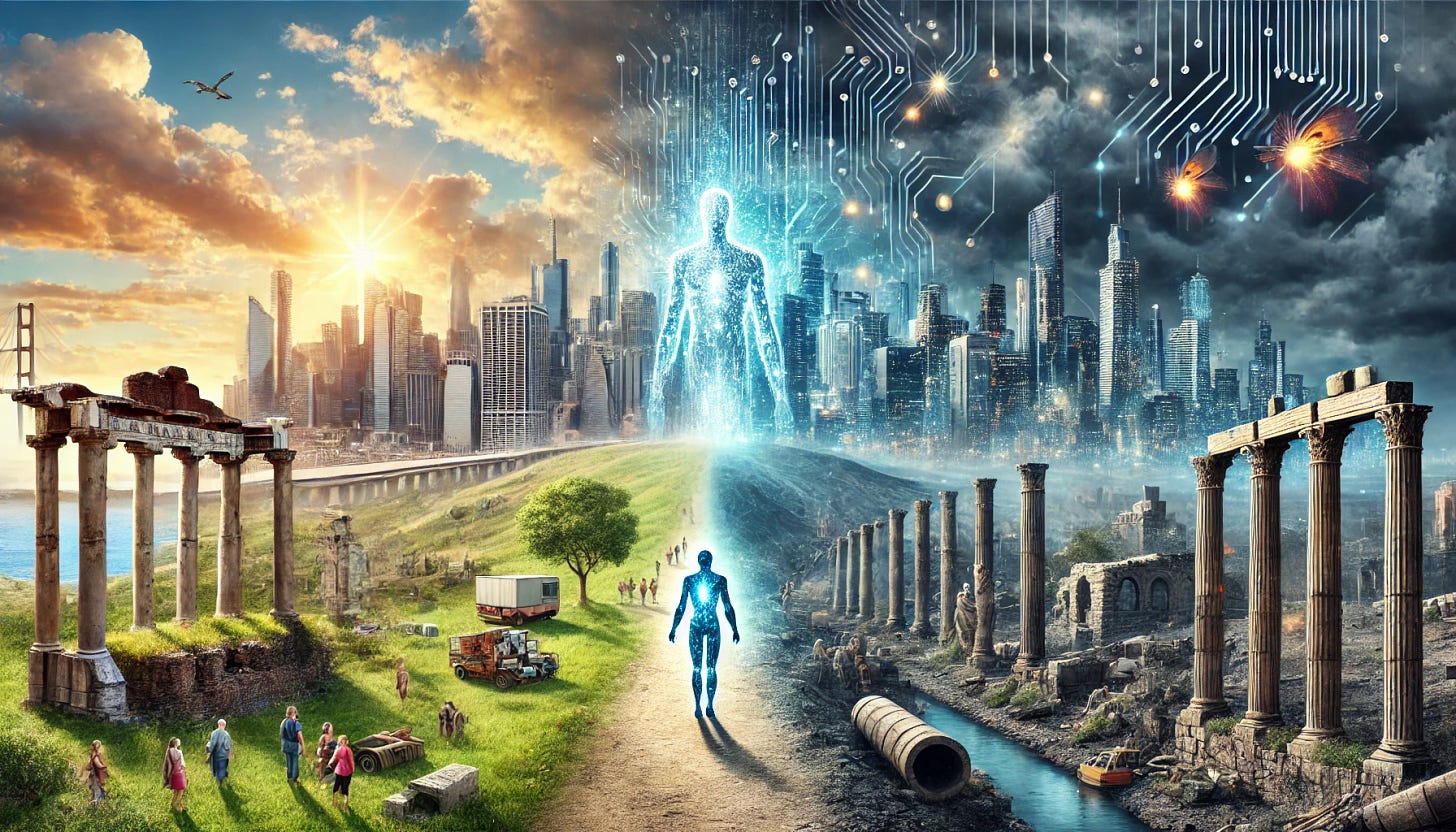Human Progress
Progress is impossible without change, and those who cannot change their minds cannot change anything.
–George Bernard Shaw
Aging is a Disease
Imagine tomorrow that everyone started dying at the end of their teenage years.
Teens can have kids, so the human species could be structured to survive like this (humor me; this is just a thought experiment). We'd all agree that this would be massively, unequivocally bad. Whether we're maximizing pleasure/meaning/purpose/contribution, whatever, it doesn’t matter. For our purposes, it’s axiomatic to say that teenagers dying is bad.
This is not to say that a 15-year-old shouldn't attempt to change this world positively; even if you can't fix the "all teens die" problem, you should try to add value. But all teenagers dying would still be massively, unequivocally bad in a way far beyond anything in our current experience is massively, unequivocally bad.
To those of us in the "death is bad" camp, we already live in this world.
The conceptual equivalent of 6,500 American teenagers and 115,000 worldwide teenagers die every day.
Our AI Overlord
The “AI will save us all” narrative feels lacking and ignoring historical context.
The Assyrians ruled for over a thousand years. After they fell, hundreds of years later, people thought the ruins of their city walls were made by aliens or gods. No human they knew could make anything close to that.
For hundreds of years after Rome fell, many didn’t know what the aqueducts were or how they worked. It wasn’t uncommon for aqueducts to be taken apart for building materials for homes.
Human progress has followed a power law since the Industrial Revolution. This is only 250 years ago!
There could be a world where people disassemble fiber optic cables to use as insulation in their homes.
Inevitable?
Some think progress is inevitable. Around the same time, different people worldwide discovered the telephone, light bulb, steam engine, and radio. The same goes for calculus, logarithms, boolean algebra, and the theory of evolution by natural selection. Modern historians love this narrative.
It’s comforting to believe progress is inevitable. If you don’t build, others will. However, it diminishes the accomplishments of others to make the non-contributing person feel better about themselves. It takes away agency and is only true in the rare cases throughout history where civilizations have the incentive, knowledge, and ability to innovate.
Companies like Google, Facebook, and Twitter were inevitable. There were dozens of search engines, social media sites, and blogging/micro-blogging startups. Companies like Tesla, Palantir, and SpaceX were not inevitable. They had no competitors for over a decade. They went against the trend and grain of society and thus have had a much larger impact on human progress.
Similarly, it wasn’t inevitable for Genghis Khan to unite all of the steppe tribes and conquer the known world to create the largest contiguous empire in history. The American Revolution wasn’t inevitable and had a low probability of succeeding. Even after the success, most timelines had George Washington become king; instead, he let America become a free, innovative republic.
Battle of Ideas
The battle of ideas is the battle of our time. The core issue and scariest thing is: Time doesn’t inevitably lead to progression. It comes down to people taking action. It’s people who stand up for what matters who lead to progression. The metaphorical men in the arena.
I ascribe more to the great man theory of history—without Isaac Newtown publishing Principia Mathematica, the Industrial Revolution would likely never have started. Newton would likely never have been able to publish if he wasn’t funded and promoted by Edmond Halley (of Halley’s Comet fame).
Similarly, Nazi Germany would have won at least Europe and maybe the world if not for Churchill. It wasn’t a foregone conclusion that the Allies would win WW2, and it’s not foregone that the West perseveres and triumphs over the CCP, Marxism, radical Islam, and other threats.
Civilization is far more fragile than people imagine. Take a look at our supply chains, and you’ll see how easily they could unravel. Left to our own devices, death, disease, and despair are most common.
Korea is a crazy A/B test of taking a population and having it live under two different systems. All of Korea would be under the North Korean system today if not for US intervention. There’s little stopping a lot of the world and the US from becoming like North Korea in the future.
The growth we’re experiencing now could be anomalous and come to a sudden halt and reversal. Capitalism, natural rights, and Judeo-Christian values are incredibly unnatural and unintuitive. They’re the only proven way to have a civilization we enjoy being a part of.
Save Us
To appeal to the “AI will save us all” worldview, capitalism and Judeo-Christian values are necessary to create the AI overlords that will have our best interests at heart. The AI can then iterate on what's best for humans with regard to fulfillment and happiness.

